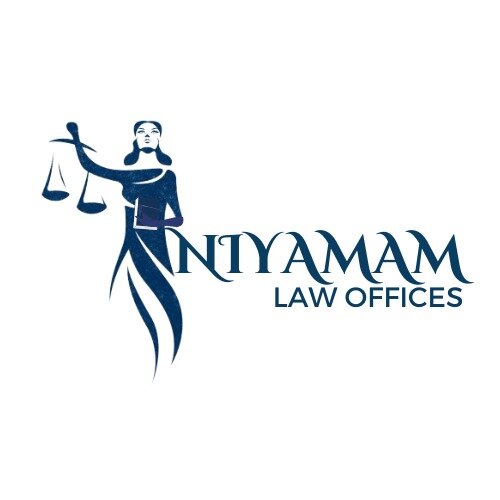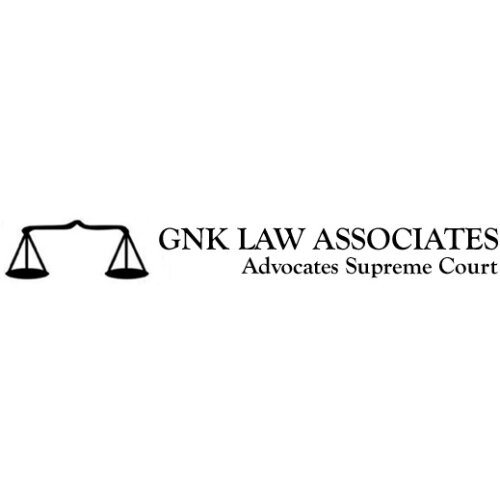Best Business Lawyers in Delhi
Share your needs with us, get contacted by law firms.
Free. Takes 2 min.
List of the best lawyers in Delhi, India
India Business Legal Questions answered by Lawyers
Browse our 1 legal question about Business in India and read the lawyer answers, or ask your own questions for free.
- What documents are required for registering the hair oil business
- What documents are required for registering the hair oil business
-
Lawyer answer by Quartz Legal Associates
1. Determine the Category of the ProductBefore registration, you must determine under which regulatory category your hair oil falls:Type of Hair OilGoverning Law / AuthorityExamplesCosmetic Hair OilDrugs and Cosmetics Act, 1940 & Rules, 1945 (Part XIII)Almond hair oil, coconut hair...
Read full answer
India Business Legal Articles
Browse our 1 legal article about Business in India written by expert lawyers.
- Appealability and Legal Provisions Governing Appeals Against Orders Passed by the Commercial Courts under the Commercial Courts Act, 2015
- Introduction and BackgroundThe Commercial Courts Act, 2015 (hereinafter referred to as “the Act”) was introduced as a transformative measure within India’s judicial framework, aimed at addressing the persistent inefficiencies that plagued the resolution of commercial disputes. Prior to its enactment, commercial litigation in India often suffered from procedural delays, multiplicity... Read more →
About Business Law in Delhi, India
Business law in Delhi, India encompasses various legal aspects that govern the operations of businesses in the region. These laws regulate different aspects such as business formation, contracts, taxation, intellectual property rights, and labor issues. Understanding the legal framework is crucial to ensuring compliance and protecting your business interests.
Why You May Need a Lawyer
There are several situations where seeking legal assistance for your business in Delhi may be necessary:
- Business Formation and Registration: A lawyer can guide you through the process of registering your business entity, such as a partnership, limited liability company (LLC), or private limited company (PLC).
- Contractual Agreements: Whether it's drafting, reviewing, or negotiating contracts with clients, suppliers, or employees, a lawyer can help protect your interests and ensure compliance with legal requirements.
- Licensing and Permits: Certain businesses require specific licenses and permits to operate legally. An attorney can assist you in obtaining the necessary permissions and adhering to regulatory requirements.
- Intellectual Property Protection: If you have unique inventions, trademarks, or copyrights, a lawyer can help you secure and defend those rights, preventing unauthorized use or infringement.
- Employment Issues: When dealing with employee contracts, disputes, or compliance with labor laws, legal guidance can help you navigate the complexities of employer-employee relationships.
Local Laws Overview
In Delhi, India, businesses must comply with various local laws. Key aspects include:
- The Delhi Shops and Establishments Act: This law governs the registration and regulation of shops and commercial establishments, including working hours, holidays, and conditions of work.
- The Delhi Value Added Tax (DVAT) Act: This act regulates the levy and collection of taxes on the sale of goods in Delhi. Understanding the DVAT provisions is essential for proper tax compliance.
- The Delhi Labor Welfare Fund Act: It mandates employers to contribute to the welfare fund for employees and comply with various welfare provisions.
- The Delhi Minimum Wages Act: This act ensures fair remuneration for employees and sets the minimum wages applicable to different categories of workers.
Frequently Asked Questions
1. Can I start a business in Delhi without registering it?
No, it is essential to register your business to comply with legal requirements and enjoy legal protection. Consult a lawyer to understand the appropriate registration process based on your business structure.
2. What legal responsibilities do employers have concerning their employees in Delhi?
Employers in Delhi must comply with labor laws, including payment of minimum wages, timely salary disbursement, safe working conditions, and providing necessary benefits as per the applicable provisions.
3. What steps are involved in trademark registration in Delhi?
To register a trademark in Delhi, you need to conduct a comprehensive trademark search, file an application with the Trademark Office, go through the examination process, and, if approved, complete the registration process. It is recommended to consult a lawyer specializing in intellectual property.
4. How can I dissolve a partnership firm in Delhi?
Dissolving a partnership firm in Delhi involves various legal procedures. It is advisable to consult a lawyer familiar with partnership laws to guide you through the process, ensuring compliance with legal requirements and equitable distribution of assets and liabilities.
5. What are the consequences of non-compliance with tax laws in Delhi?
Non-compliance with tax laws in Delhi can lead to penalties, fines, or legal consequences. It is vital to understand and comply with tax regulations, file accurate returns within the specified timelines, and seek legal assistance to ensure proper tax planning and compliance.
Additional Resources
For further legal advice and assistance in the field of business in Delhi, consider reaching out to:
- Delhi Bar Association
- Delhi Chamber of Commerce and Industry
- Ministry of Micro, Small and Medium Enterprises (MSME)
- Department for Promotion of Industry and Internal Trade (DPIIT)
Next Steps
If you require legal assistance in business matters in Delhi, it is recommended to:
- Identify the specific issue or concern you need help with, such as contracts, taxation, intellectual property, or employment.
- Research and shortlist experienced lawyers or law firms specializing in business law in Delhi.
- Contact the selected lawyers to schedule initial consultations.
- During the consultation, discuss your situation, seek their advice, and inquire about their fees and relevant experience.
- Choose a lawyer who understands your needs and can provide effective legal guidance.
- Follow their instructions, share necessary documentation, and work closely with your lawyer to resolve the legal issue.
Lawzana helps you find the best lawyers and law firms in Delhi through a curated and pre-screened list of qualified legal professionals. Our platform offers rankings and detailed profiles of attorneys and law firms, allowing you to compare based on practice areas, including Business, experience, and client feedback.
Each profile includes a description of the firm's areas of practice, client reviews, team members and partners, year of establishment, spoken languages, office locations, contact information, social media presence, and any published articles or resources. Most firms on our platform speak English and are experienced in both local and international legal matters.
Get a quote from top-rated law firms in Delhi, India — quickly, securely, and without unnecessary hassle.
Disclaimer:
The information provided on this page is for general informational purposes only and does not constitute legal advice. While we strive to ensure the accuracy and relevance of the content, legal information may change over time, and interpretations of the law can vary. You should always consult with a qualified legal professional for advice specific to your situation.
We disclaim all liability for actions taken or not taken based on the content of this page. If you believe any information is incorrect or outdated, please contact us, and we will review and update it where appropriate.
Browse business law firms by service in Delhi, India
Delhi, India Attorneys in related practice areas.















